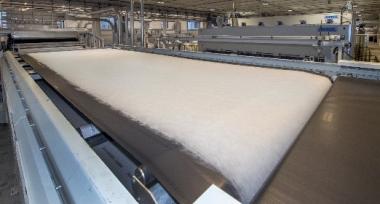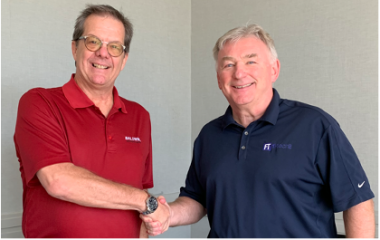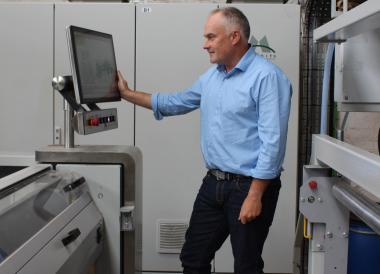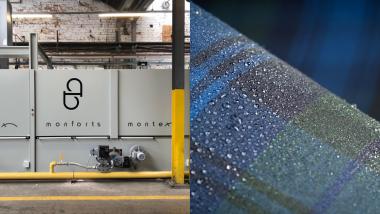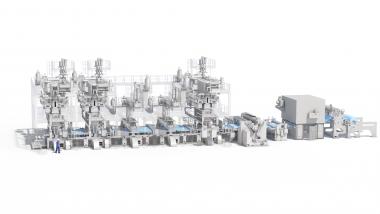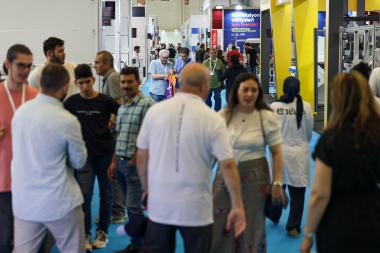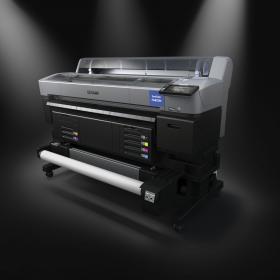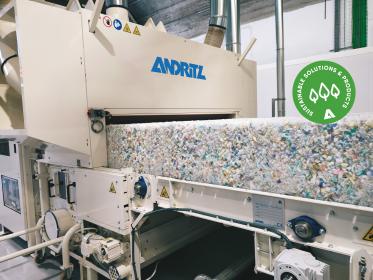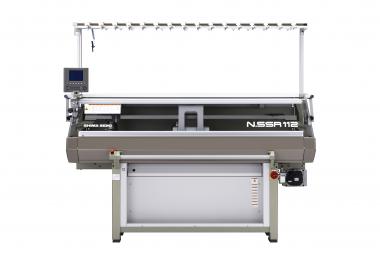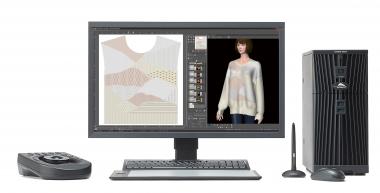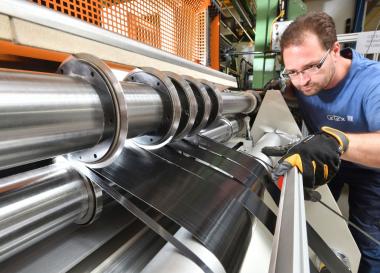Starlinger-Anlagen in Indien: rPET für Bottle-to-Fiber und Bottle-to-Bottle
Ganesha Ecopet Private Limited, eine Tochtergesellschaft des indischen PET-Recyclingpioniers Ganesha Ecosphere Ltd., hat vor kurzem eine neue Produktionsstätte in Warangal unter dem Markennamen "Go Rewise" in Betrieb genommen und stellt dort rPET für Filamentgarne, Fasern und lebensmitteltaugliche Verpackungen her.
Im neuen Werk in Warangal im Bundesstaat Telangana wurden zwei Starlinger PET-Recyclinganlagen installiert, das dort produzierte rPET-Granulat wird unter dem neu gegründeten Markenunternehmen "Go Rewise" vermarktet, das sich zur Herstellung von rPET höchster Qualität in einem ressourcenschonenden Prozess verpflichtet hat.
Eine der beiden Starlinger-Anlagen, eine recoSTAR PET 165 H-VAC, verarbeitet gewaschene PET-Flaschenflakes für die Polyesterfilamentproduktion von Go Rewise und erreicht einen Ausstoß von rund 14.000 Tonnen pro Jahr. Auf der zweiten Starlinger-Anlage stellt Ganesha lebensmitteltaugliche rPET-Granulate her.
Ganesha Ecosphere blickt auf 30 Jahre Erfahrung im PET-Recyclinggeschäft zurück und kann als Vorbild für nachhaltige Geschäftstätigkeit gesehen werden. 1987 gegründet, stellte das Unternehmen zunächst Textilgarne her. 1994 gehörte es zu den ersten Firmen in Indien, die begannen, PET-Abfälle aufzubereiten, um daraus recycelte Polyesterstapelfasern (RPSF) und recycelten Polyesterspinnzwirn (RPSY) herzustellen. Heute verfügt die Unternehmensgruppe über ein großes Netzwerk von über 300 Abfalllieferanten landesweit und betreibt vier Werke in Indien - zwei in Uttar Pradesh, eines in Uttarakhand, sowie die neu eröffnete Produktionsstätte in Telangana. Vor kurzem hat auch das erste Werk außerhalb Indiens in Nepal den Betrieb aufgenommen. Mit mehr als 500 Kunden und Exporten in über 18 Länder zählt Ganesha Ecosphere mit 130.000 Tonnen pro Jahr zu den größten rPET-Herstellern in Indien und verwertet aktuell rund 19 - 18 % des gesamten PET-Abfalls im Land.
Starlinger & Co Gesellschaft m.b.H.












